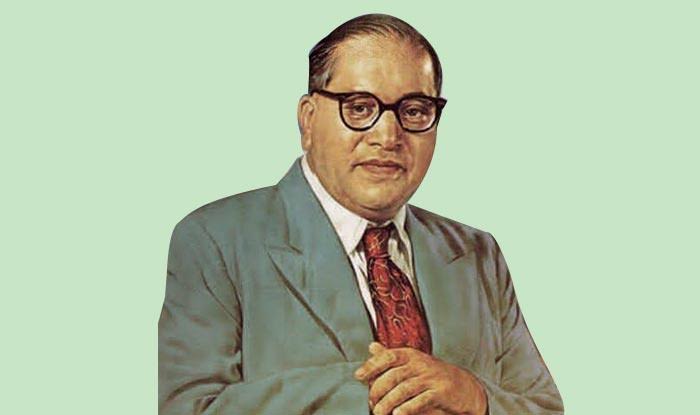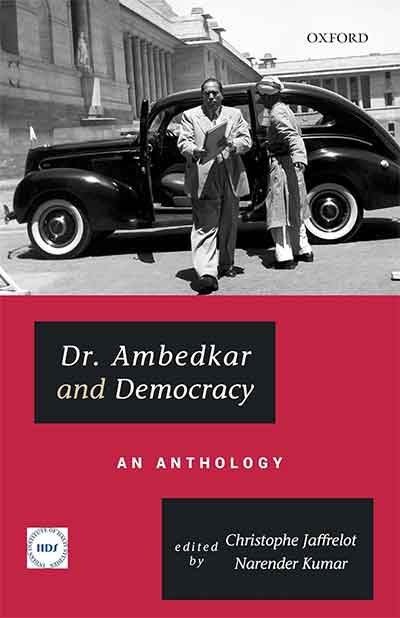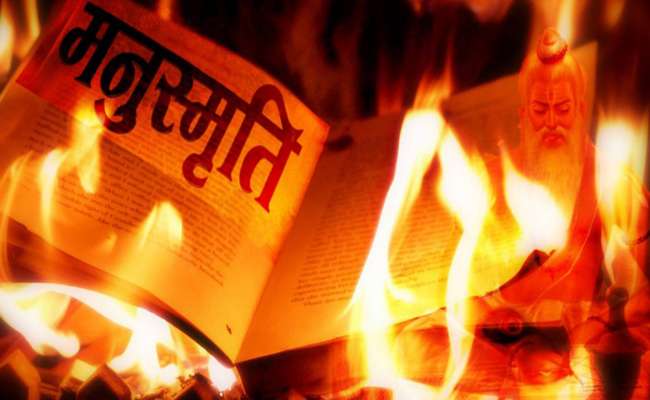
The K.G.Kannabiran Memorial Lecture, 2020, “Death of Democratic Institutions”, was delivered by Justice B.Sudarshan Reddy, retired Supreme Court Judge. Listening to the lecture led this writer to consider democracy and its institutions, especially as per Dr.B.R.Ambedkar (Ambedkar, hereafter), often considered as the father of the Constitution of India.
Ambedkar, who died on December 6, 1956 (precisely 36-years later, we suffered another tragedy), was a remarkable man – scholar, jurist, economist, politician, writer and social reformer. This writer uses quotes of Ambedkar [Ref.1], to bring them into a contemporary context.
Democracy and the parliamentary system
Ambedkar noted that the democracy introduced by the Constitution of India, provided political equality of “one person, one vote & one vote, one value”, without social and economic equality of “one person, one value”. Highlighting this contradiction in People-power, he asks: “How long shall we continue to live this life of contradictions? How long shall we continue to deny equality in our social and economic life? If we continue to deny it for long, we will do so only by putting our democracy in peril. We must remove the contradiction at the earliest possible moment, or else those who suffer from inequality will blow up the structure of political democracy ….”
Ambedkar’s view of democracy is particularly valuable because he was the only person among the giants of our freedom movement, who had first-hand experience of discrimination, segregation and untouchability, the historical social and political suppression of the community of “untouchables”, from which he rose to international eminence. It is relevant because he commented lucidly if vehemently, on the centuries-old oppressive stratified socio-political system of ‘graded inequality’.
‘Graded inequality’ is at the core of the caste system, in which castes “stand one above the other [in] an ascending scale of hatred and descending scale of contempt”, and “have no bond of sympathy”. Democracy is primarily a mode of associated living between people who form a society, and “the existence of the caste system is … the biggest challenge to democracy and … a standing denial of democracy”.
Ambedkar writes, “The Indian Congress exploits the caste system for election purpose as no other political party in India does”, and further, “The Congress, as a matter of fact, is upholding the caste system against which it is outwardly raising an outcry against the existence of caste”.
Ambedkar opines that the purpose of democracy is “to bring about the welfare of the people”. Thus, for democracy to serve the welfare of the people, Ambedkar states six unexceptionable requirements.
#1. Society should be free from “glaring inequalities [and] social cleavages”. In a world in which perfect equality is impossible, economic inequalities should be minimized, whereas there should be no uncrossable barriers/ cleavages within society, like the caste-based social system.
#2. Parliament should have a strong, functional opposition, “ready to challenge government”, and a media “to show whether the government is going wrong”. Ambedkar recognized that “it is the revenue from advertisements [which] have given far more publicity to the government than to the opposition, because [media] cannot get revenue from the opposition”. Commenting on the Congress, Ambedkar says, “For the last 20 or 30 years, we acclimatized to one single political party. We have nearly forgotten the necessity and importance of ‘opposition’ for the fair working of parliamentary democracy. We are continuously told that opposition is an evil. The Congress does not want any ‘opposition’”.
#3. There must be equality in law and administration, but especially in administration. Therefore, “Administration must not be interfered with by government … the function of government [is] to lay down policy”.
#4. There should be no tyranny of the majority over a minority in the name of democracy. Here, clearly Ambedkar was speaking of seats in Parliament, but he also spoke of tyrannical political power: “Political power in this country has too long been the monopoly of a few and the many are [not] only beasts of burden but also beasts of prey”.
#5. Law and order are necessary for people in a free society, but it can work only when “society [has] enough morality in it to make the law a success”. Speaking of his own times, Ambedkar says, “If there is no moral order, democracy will go to pieces, as it is going now probably in our own country”.
#6. Public conscience must be active if justice for all is to be ensured. “Public conscience means conscience which becomes agitated at every wrong, no matter who is the sufferer, and it means that everybody, whether he suffers that particular wrong or not, is prepared to join him in order to get him relieved”. Ambedkar says that “Although there is injustice in every country, the injustice is not evenly spread [and] there are some who are absolutely crushed under the burden of injustice”.
Elections are an essential part of a parliamentary democracy. Ambedkar speaks of the role of ‘Big Business’ in a democracy: “We must not lose sight of the fact that ‘Big Business’ is trying to play a great part in the political life of this country. The amount that is being contributed to the Congress on behalf of ‘Big Business’ [for elections] is a very dangerous thing”.
Perhaps speaking of PM Jawaharlal Nehru, Ambedkar observed, “There is nothing wrong in being grateful to great men who have rendered life-long services to the country. But there are limits to gratefulness … no man can be grateful at the cost of his honour, no woman … at the cost of her chastity and no nation … at the cost of its liberty. This caution is far more necessary in the case of India than in the case of any other country. For in India, Bhakti or what may be called the path of devotion or hero-worship, plays [an important] part in its politics … Bhakti in religion may be a road to the salvation of the soul. But in politics, Bhakti or hero-worship is a sure road to degradation and to eventual dictatorship”.
Ambedkar exhorted students: “If we should preserve our independence, if we cherish the inherent right of individual liberty, then it is your duty as students, as the intelligent community of our country, to strive your utmost to cherish this parliamentary system of government in its true spirit and work for it”. His dire warning was, “If parliamentary democracy fails in this country, and it is bound to fail for the reasons mentioned by me, the only result will be rebellion, anarchy and communism”.
From his warning about failure of parliamentary democracy, one may reasonably deduce that Ambedkar did not consider communism as a desirable outcome, since he mentions it in the same breath as rebellion and anarchy. However, the Directive Principles of State Policy in Part IV of the Constitution reflect his positive view of state socialism, with emphasis on social justice. Ambedkar sought to establish a parliamentary democracy in which economic and political rights are fundamental rights.
Ambedkar’s prophetic words can be applied mutatis mutandis to India’s current social-economic-political situation.
Ambedkar’s prescience – the contemporary context
FM Dr.Manmohan Singh (PM P.V.Narasimha Rao) introduced neoliberal economic reforms as the New Economic Policy 1991. NEP-1991 was diligently furthered by all succeeding governments, namely, NDA-1 (PM A.B.Vajpayee) and UPA-1 & UPA-2 (PM Dr.Manmohan Singh). The NDA-2 (PM N.D.Modi) & the current NDA-3 (PM N.D.Modi) have aggressively pursued neoliberalism as ideology.
The current neoliberal political economy has seen the democracy-destroying rise of ‘Big Business’. This is accompanied by degradation of the parliamentary system with virtual elimination of an opposition. Democratic institutions have been subverted by concentration of political power in a few individuals, as Ambedkar feared over six decades ago.
Ambedkar speaks of the Congress party receiving money from ‘Big Business’. This is up-scaled in present times through the “lawful” subterfuge of electoral bonds. ‘Big Business’ influences government through the quid pro quo of opaque election funding.
Ambedkar opined that the Congress party did not want any opposition. The NDA-3 government speaks of “Congress-mukt Bharat”, which effectively is “opposition-mukt Bharat”. Notwithstanding its decisive majority in parliament, NDA-3 passed ordinances and bypassed parliamentary committees, thus degrading the parliamentary system of debate and reasoned discussion.
Economic disparity in society has grown exponentially, with a handful of Indian dollar-billionaires owning 40% of national wealth, since ‘Big Business’ increasingly controls economic policy. Many millions of people continue to live and die in squalor and poverty. The degradation of democracy is glaring.
Persons of “upper castes” commit violent hate crimes like rapes, murders and beatings on Dalits, even for trivial reasons, posting video recordings on social media. This shows that the pernicious caste system is alive and well, a blatant denial of democracy. Ambedkar alleges political duplicity of Congress upholding the caste system while outwardly condemning it. Today the situation is different only in that it is now in-your-face.
The Bhakti about which Ambedkar speaks is obvious in present times. PM Modi, with his charisma of strength and determination, oratorical excellence and sartorial elegance, is its focus. His authoritarian style of governance discourages dissent and discussion essential for democracy.
Persons who question or protest government’s policies/ programs/ proposals/ projects or ask questions, are branded anti-national, etc., even by members of government, and charged with sedition, etc. To be fair, this was also happening in UPA times, albeit less vigorously. Public conscience of which Ambedkar speaks, is sought to be silenced.
Today’s Congress party cannot credibly criticize the ruling BJP, because it was guilty of much the same of what it accuses BJP. Certainly insofar as the political economy is concerned, both subscribe to neoliberal ideology, with the NDA juggernaut only much further down that road, with the driver’s foot pressing the accelerator pedal. That is why one commentator said that NDA equals UPA scaled-up plus ‘cow’, and another joked that NDA is UPA on steroids.
Structural change?
Starting gradually with neoliberal economic reforms of NEP-1991 but with gathering speed, the constitutional values of Justice (social, economic and political), Liberty (of thought, expression, belief, faith and worship) and Equality (of status and of opportunity), have been degraded. Rather than promoting Fraternity to assure the dignity of the individual and the unity and integrity of the nation, policies and legislations are widening social and religious divisions.
The current dispensation views democracy simplistically as a numerical majority, whether in a population, expressing an opinion, or seats in a legislature. This entirely misses the constitutional values of Justice, Liberty, Equality and Fraternity.
Indeed, with over 100-crores Hindu majority in a 125-crores population, a BJP MP reportedly asked, “If there can be Muslim and Christian countries, why can’t there be a Hindu country?”. This view not being officially set aside or contradicted, presages a Hindu Rashtra replacing We the People’s Republic of India.
People’s power
Today, We the People stand on the threshold of change, as millions of farmers and workers countrywide, peacefully yet strongly demand repeal of the new Farm Laws. It is a who-blinks-first face-off with an obdurate government employing corporate-owned media power.
Farmers, workers and Veterans who are part of that socio-economic milieu, see the new Farm Laws as the finality of ‘Big Business’ take-over of the agriculture-food sector, with consequent loss of land and livelihood, and loss of food security.
The answer to the question whether Ambedkar’s fears will come to pass, are still in the womb of Time.
By the way
In Chile, the neoliberal ‘shock doctrine’ [Ref.2] was implemented starting September 11, 1973 (another tragedy precisely 28-years later), with General Pinochet declaring himself President and enacting a new Constitution.
In October 2020, Chile voted overwhelmingly to draft a new Constitution, launching a two-year struggle over first principles expected to blunt the neoliberalism that has made Chile an investor favorite, but plunged it into riots over inequality. A larger-than-expected 78.3% backed a fresh charter, a key demand of protesters who took to the streets last year in the largest civil unrest in decades [Ref.3].
References
- Bhalchandra Mungekar (Ed.); “The Essential Ambedkar”; Rupa Publications, 2017.
- Naomi Klein; “The Shock Doctrine: The rise of disaster capitalism”; Knopf Canada, 2007.
- Matthew Malinowski; “Chile to Scrap Pinochet-Era Constitution in Landslide Referendum“; <https://www.bloombergquint.com/politics/chile-holds-landmark-vote-on-new-constitution-amid-social-unrest>; BloombergQuint; October 25, 2020.
~~~~~~~~~~~~~~~~~~~~~~~~~~~~~~~~~~~~~~~~~~~~~~~~~~~~
**Major General S.G.Vombatkere (Retd) is a cross-discipline, systems-thinking sceptic.
~~~~~~~~~~~~~~~~~~~~~~~~~~~~~~~~~~~~~~~~~~~~~~~~~~~~
SIGN UP FOR COUNTERCURRENTS DAILY NEWSLETTER














































